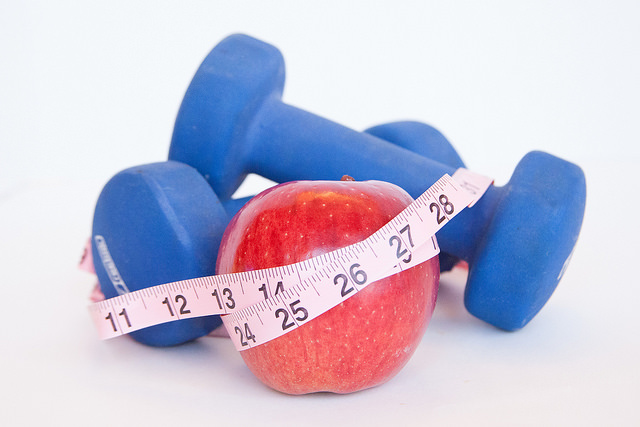Making medical decisions isn’t just a job for your doctor and other health professionals. You’re involved in the decision making process too. In fact, you’re the one who is in charge. You can’t usually ask to have any treatment you desire, but you have every right to turn any option down. Your doctor might be the one with the medical knowledge. But it’s ultimately up to you what happens to your body. However, many people are unsure about how they can be more involved in their decisions. After all, they usually aren’t the expert that anyone in the medical profession is. But you don’t need to be a physician to empower yourself when it comes to your health. Here are some of the ways you can be in charge.
Work with Your Doctor
When you’re making decisions about your health, you and your doctor should work as a team. They have the years of training, but you know your body and your mind. And even a doctor can only learn so much in the time they spend qualifying and while they work. The two of you together can look for options that neither of you may have thought of. You can help you doctor to come up with possible diagnoses and treatments. However, you need to get the right balance between helping and hindering. It won’t always be the case, but your doctor will usually know best. Similarly, if you don’t think they’re helping you, you can look for another provider.
Ask for a Second Opinion
Switching doctors isn’t always easy, but sometimes people dismiss it too easily. If you aren’t satisfied with the care you receive, you can try someone else. It could be that your first doctor missed something or that they aren’t up to date on the latest research. Doctors are humans too, so you get good ones and bad ones. Don’t assume that they’re all equal to each other and that they always know what’s best. Sometimes your doctor might be rude or unwilling to listen to you. The thought of starting again with someone new can be daunting. But it’s better than not getting anywhere with the same doctor.
Do Independent Research
Sometimes medical professionals will warn against using “Doctor Google.” However, what they are usually saying is that you shouldn’t diagnose yourself. It’s fine to consider some different options. But many symptoms could indicate hundreds of different health issues. If you do look at some possible conditions you might have, you should discuss them with your doctor. It’s best to avoid telling them what you think is wrong. Independent research is much more useful when you’re looking at different treatment options. You can look at what’s available and compare them. Make sure that you use reputable sources that are backed up with scientific studies. When you have learned about some choices, you can discuss them with your doctor.
Think About Your Values and Requirements
If you want to make the best medical decisions for you, you have to be able to understand what you want and need. Everyone has different values and varying requirements for how they want to treat something. What you need to think about could involve a number of issues. For example, you might have a surgical option and a non-surgical option. In this case, you might not want to spare the time it takes to recover from surgery. You might prefer not to take medication for a mental health issue if you have the option of therapy instead.

Compare Different Options
You’ve probably seen useful comparison sites for many different products. You can compare your car insurance or mortgage to make sure you get the best deal. It’s possible to do it for lots of different medical decisions too. Starting with your insurance, you can compare plans and providers to find the right one. There are sites that allow you to compare medical and dental insurance quickly. You can see more at mydental.GuardianLife.com/our-plans/florida/ for an example. Even if you don’t have a useful tool you can use, you can create your own comparisons. Write down the pros and cons of different choices, whether it’s providers or treatments. You can weigh up the positives and negatives based on your needs.
Make Decisions Outside of the Doctor’s Office
Making the best decisions about your health isn’t just about the big decisions. While it’s important to be empowered when you see your doctor, there’s more to it. You shouldn’t only be thinking about your health when there’s something wrong. It should be something you consider on a daily basis. The decisions that seem small can actually have a significant impact on how healthy you are. You should be making good decisions about your diet and exercise, as well as other aspects of your health. For example, choosing to go to the gym twice a week is just as important as deciding how you want to treat your cold.
Knowing When to See a Medical Professional
Sometimes making good decisions about your health is knowing when you need an expert. Knowing when to see someone and where to go benefits you and other people. For example, an emergency room would be much less busy if everyone only went to them in real emergencies. You have a range of options to you if you need to talk to someone about a health problem. Pharmacists are trained to do more than dispense medication, and can give you advice. Walk-in centers and urgent care clinics can take care of problems that aren’t serious enough for the ER. You can even receive medical information over the phone or via email. This option can be especially helpful for people in remote areas. It can also help anyone who struggles to leave the house.
However, knowing you have options doesn’t always make it easy to know which one is best for you. You can find plenty of information online about when you should go to the emergency room. You can read about when other options are better too. For example, heart attack symptoms, trouble breathing, or severe bleeding are emergency situations. There are many things you might think are emergencies but for which you could get faster treatment elsewhere. Many urgent care centers can take care of injuries such as broken bones. If they can’t take care of you, they can transport you to the nearest place that can.
Discuss Your Options with People Who Matter
Of course, your doctor and other medical professionals have a lot of the knowledge. But you might not see them as the most important people in your decision making. Many people have family or perhaps friends whose opinions they want to hear. Discussing your options with someone who cares about you can help you form your opinion. It’s not that you’re asking them what you should do. It’s just a chance to hear what they think might be best for you. You might choose to agree or disagree with them. Sometimes you might want to take them into account too. For example, you might turn down the idea of a risky procedure if it could mean your family might lose you.
Making Health Decisions for Someone Else
Not all the health related decisions you make are for you. Parents have to make choices for their children. And the children eventually might have to return the favor. Some people find it much harder to make decisions for others, whereas some find it easier. It can be easier to have an opinion that is more objective, even if you care for and love the person. Sometimes an outside perspective is needed to make the best choice. When making health decisions for others, you should be sure to do some of the same things you do for yourself. For example, speak to their medical team about the available options. Weigh the pros and cons of the choices you have, and of course get their input if it’s possible.
Helping Young People Make Decisions
When older people can’t make decisions, it’s usually because they’re no longer well enough. However, the reason minors don’t a complete choice is that they aren’t yet mature enough. Still, we can give young people some say in their medical care. In particular, teenagers and perhaps older children can begin to make informed choices. It’s important to help them feel like they have a say in what happens to them. You also have a chance to help them be empowered in a medical setting from an early age. While they might not have the final say, it’s vital to value their input. They should be given a voice in the discussion, even if the decision falls to their parents or guardian. In some cases, a medical professional might also challenge a choice if they feel it isn’t in the child’s best interests.
Making wise medical decisions can be complicated. You have to consider many different factors, but it’s necessary if you want to feel empowered.









Speak Your Mind